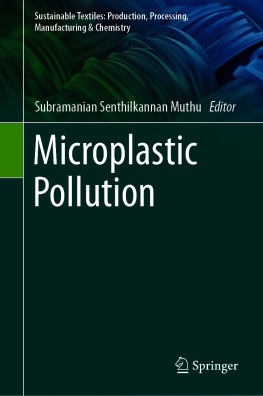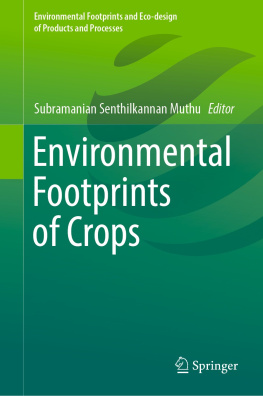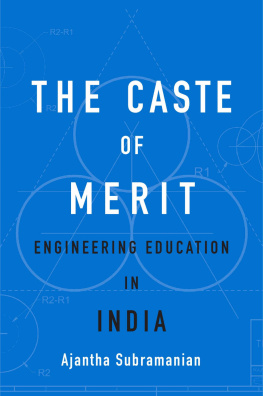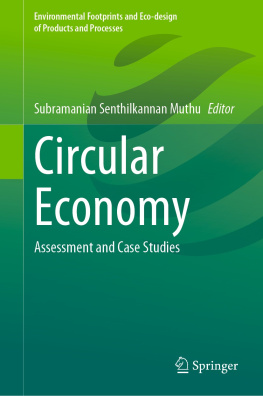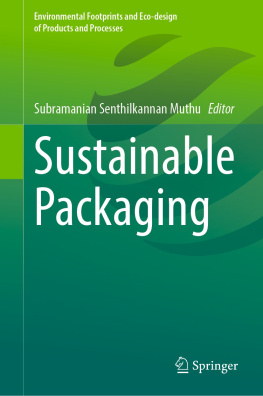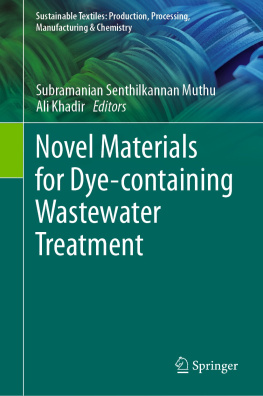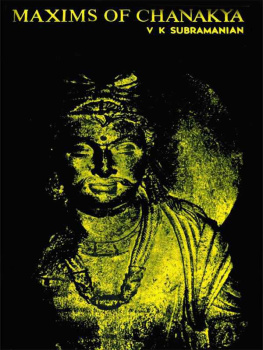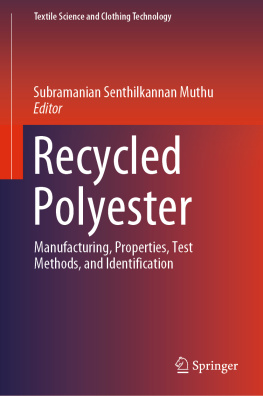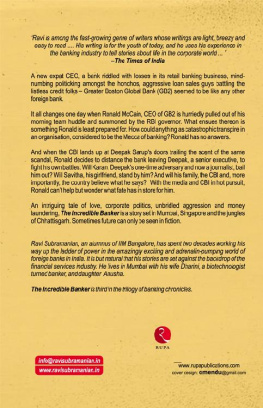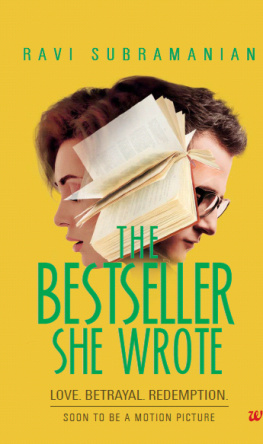Subramanian Senthilkannan Muthu (editor) - Microplastic Pollution
Here you can read online Subramanian Senthilkannan Muthu (editor) - Microplastic Pollution full text of the book (entire story) in english for free. Download pdf and epub, get meaning, cover and reviews about this ebook. year: 2021, genre: Romance novel. Description of the work, (preface) as well as reviews are available. Best literature library LitArk.com created for fans of good reading and offers a wide selection of genres:
Romance novel
Science fiction
Adventure
Detective
Science
History
Home and family
Prose
Art
Politics
Computer
Non-fiction
Religion
Business
Children
Humor
Choose a favorite category and find really read worthwhile books. Enjoy immersion in the world of imagination, feel the emotions of the characters or learn something new for yourself, make an fascinating discovery.
- Book:Microplastic Pollution
- Author:
- Genre:
- Year:2021
- Rating:5 / 5
- Favourites:Add to favourites
- Your mark:
- 100
- 1
- 2
- 3
- 4
- 5
Microplastic Pollution: summary, description and annotation
We offer to read an annotation, description, summary or preface (depends on what the author of the book "Microplastic Pollution" wrote himself). If you haven't found the necessary information about the book — write in the comments, we will try to find it.
Microplastic Pollution — read online for free the complete book (whole text) full work
Below is the text of the book, divided by pages. System saving the place of the last page read, allows you to conveniently read the book "Microplastic Pollution" online for free, without having to search again every time where you left off. Put a bookmark, and you can go to the page where you finished reading at any time.
Font size:
Interval:
Bookmark:
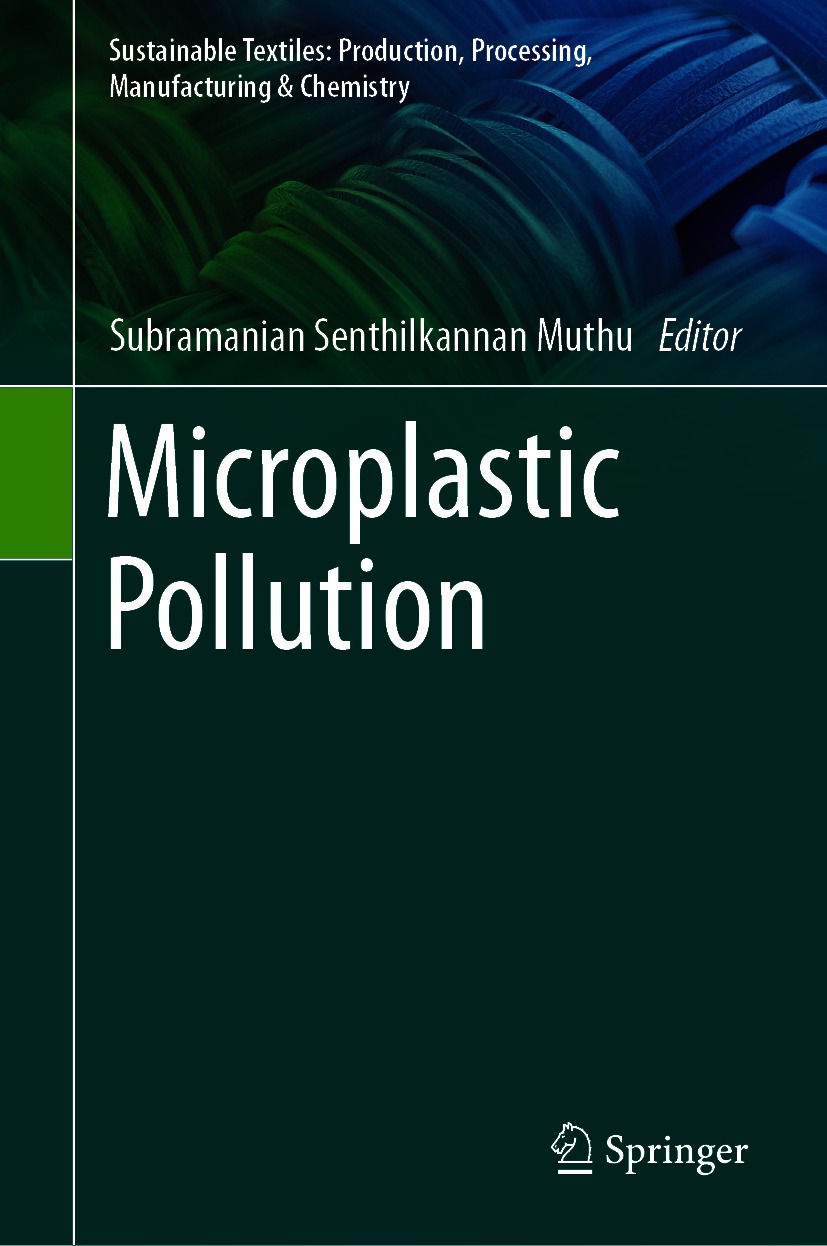
More information about this series at http://www.springer.com/series/16490 This series aims to address all issues related to sustainability through the lifecycles of textiles from manufacturing to consumer behavior through sustainable disposal. Potential topics include but are not limited to:Environmental Footprints of Textile manufacturing; Environmental Life Cycle Assessment of Textile production; Environmental impact models of Textiles and Clothing Supply Chain; Clothing Supply Chain Sustainability; Carbon, energy and water footprints of textile products and in the clothing manufacturing chain; Functional life and reusability of textile products; Biodegradable textile products and the assessment of biodegradability; Waste management in textile industry; Pollution abatement in textile sector; Recycled textile materials and the evaluation of recycling; Consumer behavior in Sustainable Textiles; Eco-design in Clothing & Apparels; Sustainable polymers & fibers in Textiles; Sustainable waste water treatments in Textile manufacturing; Sustainable Textile Chemicals in Textile manufacturing.Innovative fibres, processes, methods and technologies for Sustainable textiles; Development of sustainable, eco-friendly textile products and processes; Environmental standards for textile industry; Modelling of environmental impacts of textile products; Green Chemistry, clean technology and their applications to textiles and clothing sector; Eco-production of Apparels, Energy and Water Efficient textiles.Sustainable Smart textiles & polymers, Sustainable Nano fibers and Textiles; Sustainable Innovations in Textile Chemistry & Manufacturing; Circular Economy, Advances in Sustainable Textiles Manufacturing; Sustainable Luxury & Craftsmanship; Zero Waste Textiles.

This Springer imprint is published by the registered company Springer Nature Singapore Pte Ltd.
The registered company address is: 152 Beach Road, #21-01/04 Gateway East, Singapore 189721, Singapore
This book is dedicated to:
The lotus feet of my beloved Lord Pazhaniandavar
My beloved late Father
My beloved Mother
My beloved Wife Karpagam and DaughtersAnu and Karthika
My beloved BrotherRaghavan
Everyone working with Micro Plastics Pollution to make ourplanet Earth SUSTAINABLE
currently works for SgT Group as Head of Sustainability, and is based out of Hong Kong. He earned his Ph.D. from The Hong Kong Polytechnic University, and is a renowned expert in the areas of Environmental Sustainability in Textiles & Clothing Supply Chain, Product Life Cycle Assessment (LCA), Ecological Footprint and Product Carbon Footprint Assessment (PCF) in various industrial sectors. He has five years of industrial experience in textile manufacturing, research and development and textile testing and over a decade's of experience in life cycle assessment (LCA), carbon and ecological footprints assessment of various consumer products. He has published more than 100 research publications, written numerous book chapters and authored/edited over 95 books in the areas of Carbon Footprint, Recycling, Environmental Assessment and Environmental Sustainability.
Fast fashion is one of the recent changes in the apparel and fashion industry. The fast-fashion process enables mass customers to adapt to the current trend in a short period. To reach the customers at the earliest time at an affordable price, the manufacturing industries use cheaper raw materials in various processes of manufacturing. Synthetic textiles like polyester, polypropylene, and acrylic are the common fibers used in the fast-fashion items. These fibers are identified as a major source of microfiber pollution. The synthetic fabric sheds microfibers during wearing, laundry, and disposal. A recent study estimated that the synthetic clothing sale would reach 160 million tons in 2050 and subsequently 22 million tons of microfiber added into the ocean between 2015 and 2050. The microfiber shedding of textiles is mainly influenced by the different production and fiber parameters. The chapter aims to elaborate on the role of different synthetic fibers and their shedding properties. Similarly, the influence of fabric manufacturing methods like weaving and knitting also detailed for a better understanding of shedding. Further, this chapter details the fabric parameters like fabric thickness, fabric density, structure type, and their influence on microfiber shedding. The last part of the chapter deals with the influence of different finishing methods to control or reduce the microfiber shedding from synthetic fabric.
Font size:
Interval:
Bookmark:
Similar books «Microplastic Pollution»
Look at similar books to Microplastic Pollution. We have selected literature similar in name and meaning in the hope of providing readers with more options to find new, interesting, not yet read works.
Discussion, reviews of the book Microplastic Pollution and just readers' own opinions. Leave your comments, write what you think about the work, its meaning or the main characters. Specify what exactly you liked and what you didn't like, and why you think so.

